Upwardly Mobile
Professor Lance Price, Tim Walsh
Horizon - Defeating the Superbugs
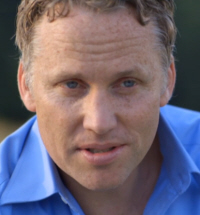
Professor Lance Price
In 2006, the European Union banned the use of antibiotics as growth promoters in animal feed. But elsewhere in the world, it is still being used
in vast quantities.
Lance Price "In the United States we use 29 million pounds of antibiotics every year in food animal production. I mean, you know, these are the
crown jewels of modern medicine, they're being used like cheap production tools."
There is a movement in the US to change this practice. Professor Price is working with farmers who are trying new ways of keeping animals
healthy, without constant use of antibiotics in the feed. Removing antibiotics from the feed means farmers need to take other measures to
avoid their livestock getting infections. But working this way means farms are less likely to encourage superbugs to emerge.
Farmer "Everybody would say there's no way you're going to be able to raise turkeys without antibiotics. So we started trials and learned from
that, that we need to give birds more space and really go out of your way to have the best animal husbandry, that they don't get stressed. And
now, if we do get sick flock, which is rare, but if we get one and we have to treat it, we can use the simplest antibiotics like tetracycline,
and it usually works great."
For where it continues, large-scale use of antibiotics in animal feed can create the right environment for superbug emergence.
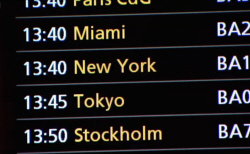
World-travelled Bacteria
Lance Price "Bacteria don't wear lapel pins they are not confined to any geographic area, and so what we do here in the United States can
potentially impact you. So as we create these multi-drug-resistant pathogens, those pathogens can then spread around the world. And so you
should be just as concerned as I am about what we're doing over here."
Whenever a superbug outbreak occurs in the world, doctors across the globe start to worry, because regardless of where they first emerge,
the superbug can soon become a citizen of the world.
Professor Tim Walsh "We carry about 100 trillion bacteria in us, therefore, when we travel the world, they travel the world. Any types of
resistance that can occur in one country can very easily be transported around the world, almost in real time."
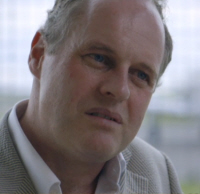
Professor Tim Walsh
With the rising levels of air travel, resistant bacteria have hitched rides across the globe.
Tim Walsh "Probably, in about the last 15 to 20 years, we've managed to contaminate the whole of the planet. Even if you go to the north
of Norway, or even down into Australia, then to Tasmania, you will find these types of resistances."
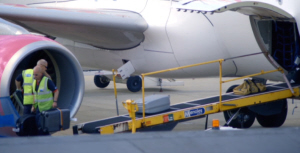
Air Travelling Contamination
Not only are superbugs being found all over the world, scientists are finding that these bacteria are becoming harder and harder
to treat. It's this problem that Professor Tim Walsh grapples with every day.
Tim Walsh "This is a very quick illustration of how resistance has evolved over about the last 20 years."
Each white disc on these plates contains different antibiotic. A clear circle indicates the antibiotic is working and killing the bacteria.
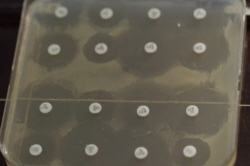
Antibiotic Samples
Tim Walsh "This E. coli from India about 20 years ago was truly sensitive to the series of antibiotics which we would use to treat E. coli infections."
12 years ago, the E. coli had started to become resistant to some of the antibiotics, but the newest strain has shown unprecedented levels of resistance.
Tim Walsh "You can see here it's virtually totally resistant. The only antibiotic that shows any activity against this particular organism, is
this antibiotic here, which has some issues with toxicity, and it's at the moment about 40, 50 years old. We are starting to have a bit of a
renaissance with it, because clearly see that we have nothing left."
We are beginning to see this level of resistance appear all over the world. Bacteria that only respond to a few rarely used antibiotics. And
the trouble is these antibiotics of last resort can often be toxic themselves. Scientists believe there is an urgent need to re-stock our
arsenal with new antibiotics.




